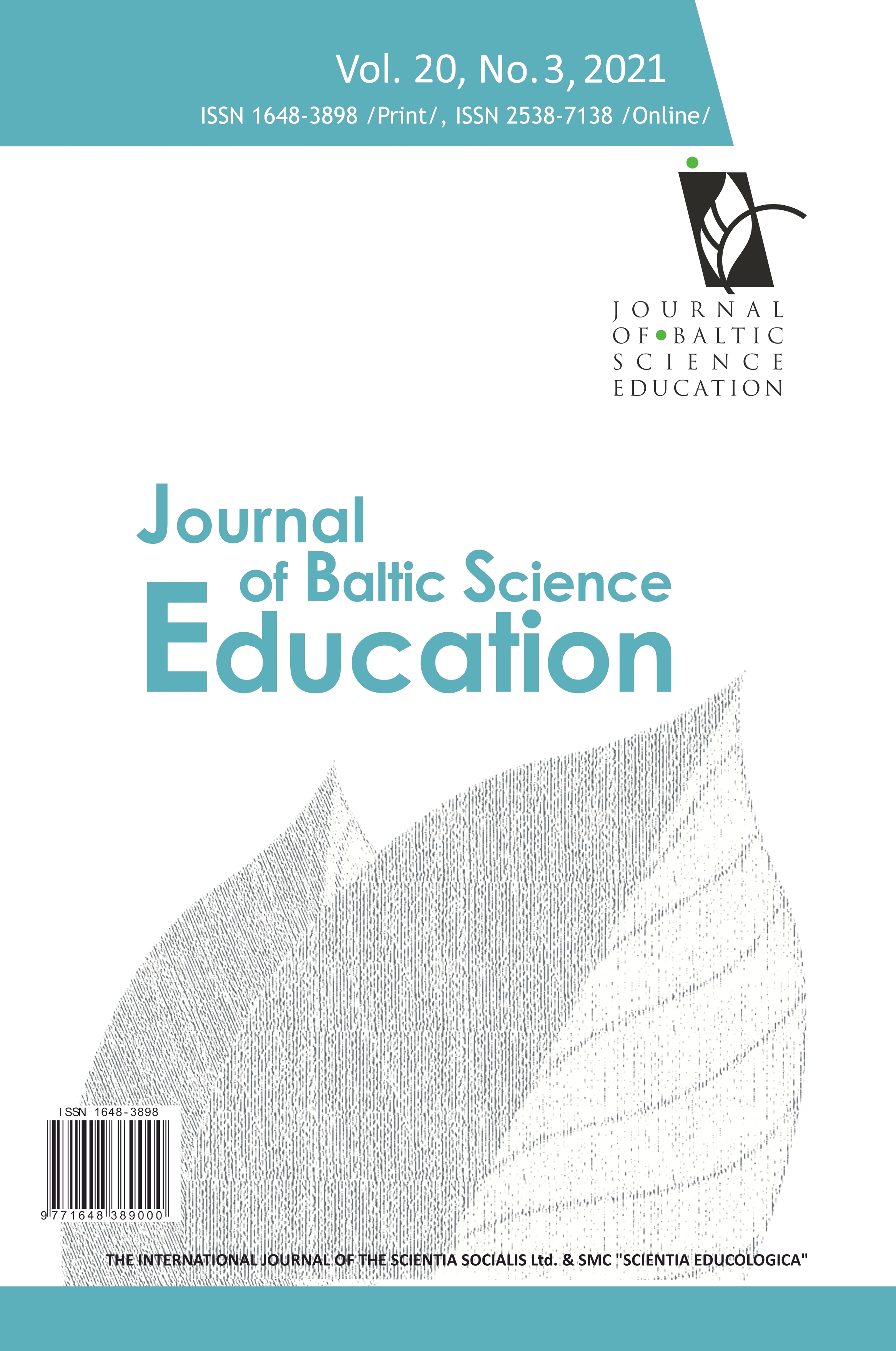EDUCATIONAL EFFICIENCY AND STUDENTS’ INVOLVEMENT OF TEACHING APPROACH BASED ON GAME-BASED STUDENT RESPONSE SYSTEM
EDUCATIONAL EFFICIENCY AND STUDENTS’ INVOLVEMENT OF TEACHING APPROACH BASED ON GAME-BASED STUDENT RESPONSE SYSTEM
Author(s): Branka N. RadulovićSubject(s): Education, School education
Published by: Scientia Socialis, UAB
Keywords: educational efficiency; students’ involvement; GSRS; scientific reasoning; teaching physics;
Summary/Abstract: Modern approaches in Physics classes which involve the game-based student response system (GSRS) have been in use for a while, but their educational efficiency and students’ involvement have not been examined. Therefore, this research’s main aim was to determine the educational efficiency and students’ involvement of GSRS and to assess their effect on scientific reasoning. The values of educational efficiency and students’ involvement were calculated based on students’ achievement and perceived mental effort. To determine these values, a pedagogical experiment with parallel groups was applied. The research was conducted on a sample of 172 secondary school students, and included material related to direct currents. The results point to positive and higher values of the educational efficiency and students’ involvement for GSRS approach than the conventional approach. It means that GSRS approach causes lower mental effort, letting more space generate in the working memory to perceive and process new information. The results also show a positive effect of GSRS on higher students’ engagement during the class and scientific reasoning. The obtained results undoubtedly indicate the positive effect of GSRS on the students’ performance. Therefore, GSRS approach should be used often in the classroom.
Journal: Journal of Baltic Science Education
- Issue Year: 20/2021
- Issue No: 3
- Page Range: 495-506
- Page Count: 12
- Language: English

